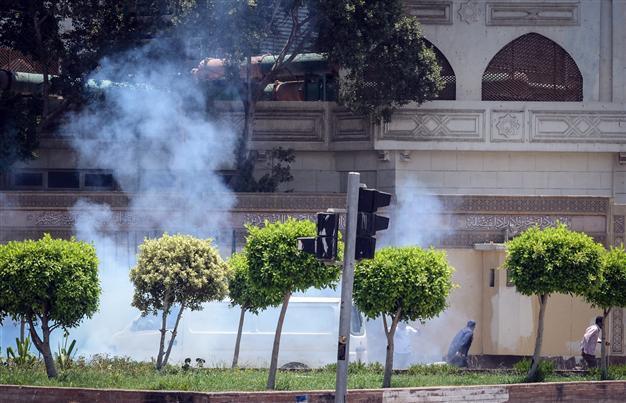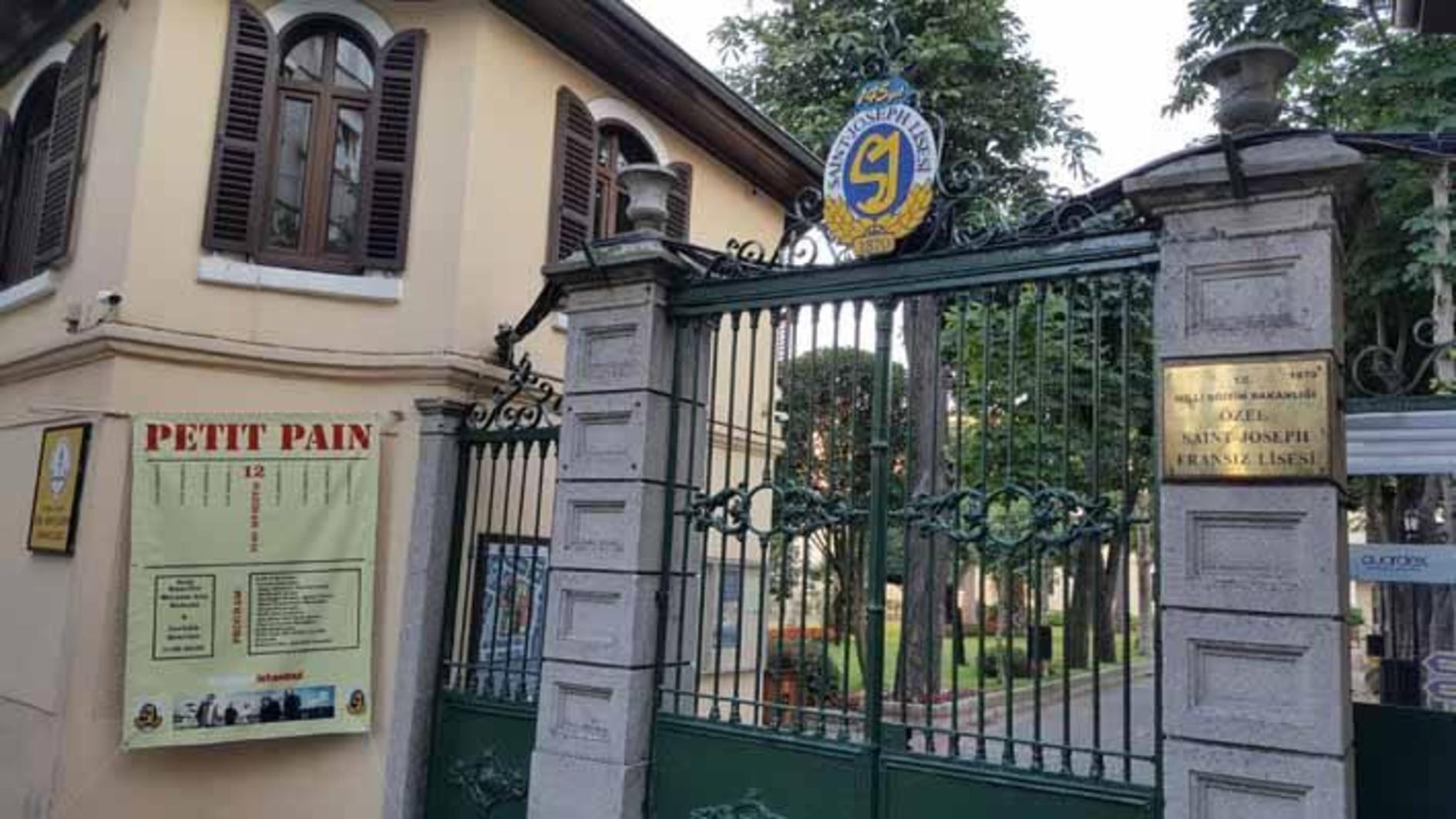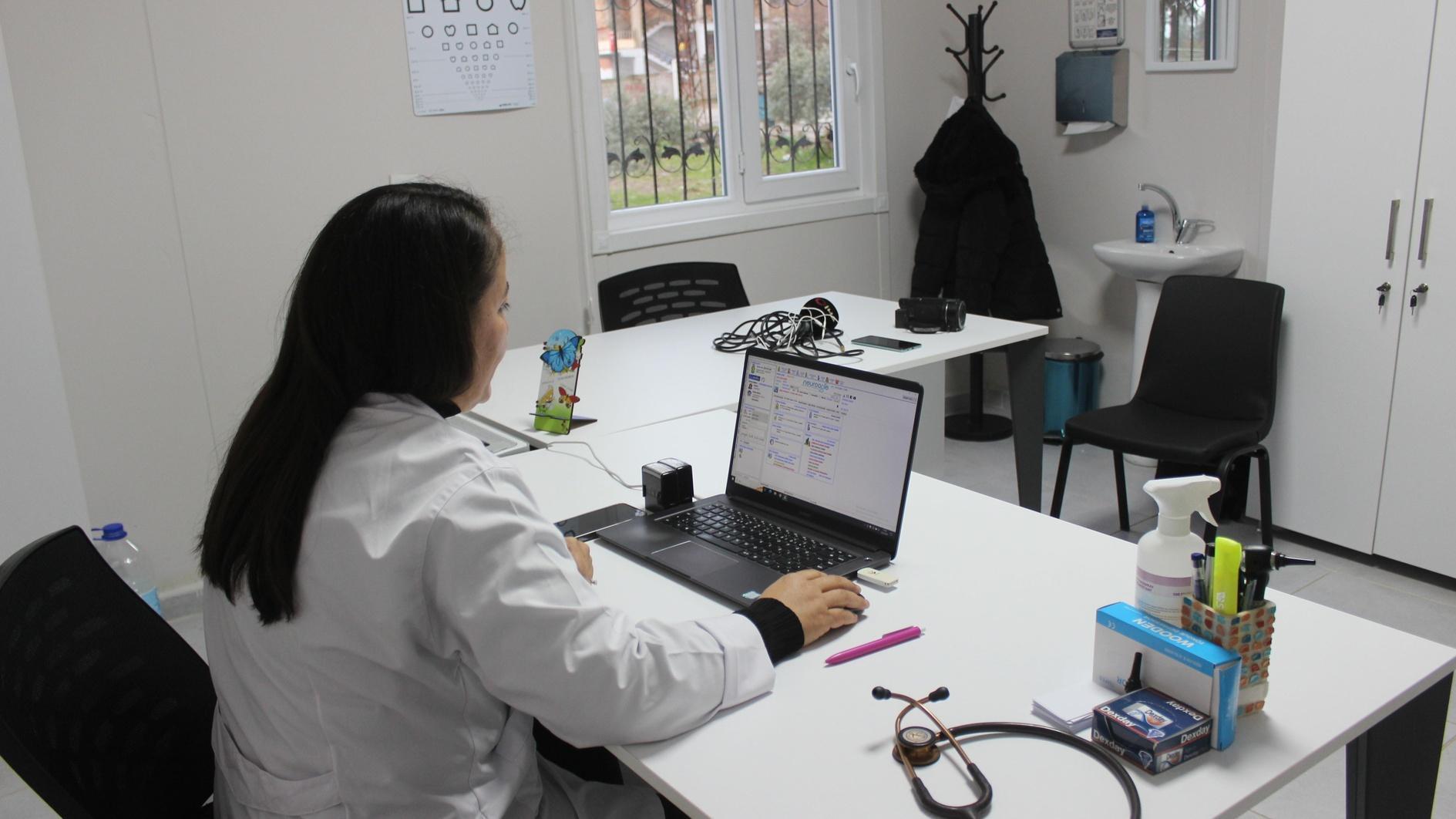Two Egypt officers killed defusing bombs near president palace
CAIRO - Agence France-Presse

People run for cover moments after a bomb blast in the vicinity of the Ittihadiya palace in the Egyptian capital Cairo, on June 30, 2014. AFP Photo
Two Egyptian police officers were killed defusing bombs near the presidential palace in Cairo Monday, almost a year to the day after a military takeover unleashed a wave of repression and militant attacks.An Islamist militant group, one of several that have spearheaded attacks since president Mohamed Morsi's ouster on July 3 last year, warned several days ago that it had planted bombs in the vicinity of the east Cairo palace.
It was not immediately clear whether Abdel Fattah al-Sisi, the army chief who ousted the Islamist Morsi and then won a May presidential election, was in the Ittihadiya palace at the time.
The interior ministry said a colonel was killed and several policemen were wounded when a bomb they were trying to defuse went off.
Later, as policemen cordoned the area and tried to defuse another explosive, it went off killing a lieutenant colonel and wounding several officers, said police officials and AFP journalists on the scene.
An ambulance medic's hand was shorn off in the explosion. Blood specked a white police van nearby, and a disposal robot moved a third bomb to the middle of the street, where sappers defused it safely.
Militant attacks have killed almost 500 policemen and soldiers since Morsi's overthrow and incarceration, according to the government.
On Wednesday, five small bombs went off in Cairo metro stations, wounding five people, followed by two bombs on Saturday in a telecommunication tower that killed a watchman's wife and his daughter.
Attacks have dropped over the past few months as police killed or arrested dozens of suspected militants.
But a brazen statement by a militant group saying it had planted bombs near the palace suggested the militants still have the ability to strike heavily guarded installations.
"God has allowed our heroic soldiers to penetrate the fortifications of the mass murderer's lair in Ittihadiya palace" to plant bombs, the militant Ajnad Misr group said in a Friday statement, referring to Sisi.
The militant group -- which the interior ministry had claimed had been defeated -- said it had not set off the bombs to avoid civilian casualties and warned passersby to stay away from the palace.
Sisi, whom Morsi had appointed as defence minister during his single and turbulent year in power, has pledged to crack down on militants.
He won the May election with 97 percent of the vote against a weak leftist candidate, amid widespread demand for a strong leader who can restore stability.
He was the de facto leader even before his election victory, and the Islamists blame him for a brutal crackdown that has killed at least 1,400 people in street clashes since Morsi's overthrow.
The authorities have blamed Morsi's Muslim Brotherhood movement -- now designated as a terrorist group -- for militant attacks, a charge the group denies.
The Islamists say they eschewed violence decades ago and are committed to peaceful protest.
A Brotherhood-led coalition, the Anti-Coup Alliance, said on Monday it would hold a "day of rage" on July 3, the anniversary of Morsi's overthrow.
The Islamists have held near daily rallies that have grown ever smaller amid the relentless police crackdown.
At least 16,000 Islamists and suspected allies have been arrested, with about 200 sentenced to death in speedy trials.
They include Muslim Brotherhood leader Mohamed Badie. Morsi himself faces several trials which if convicted could see him being sentenced to death.
















